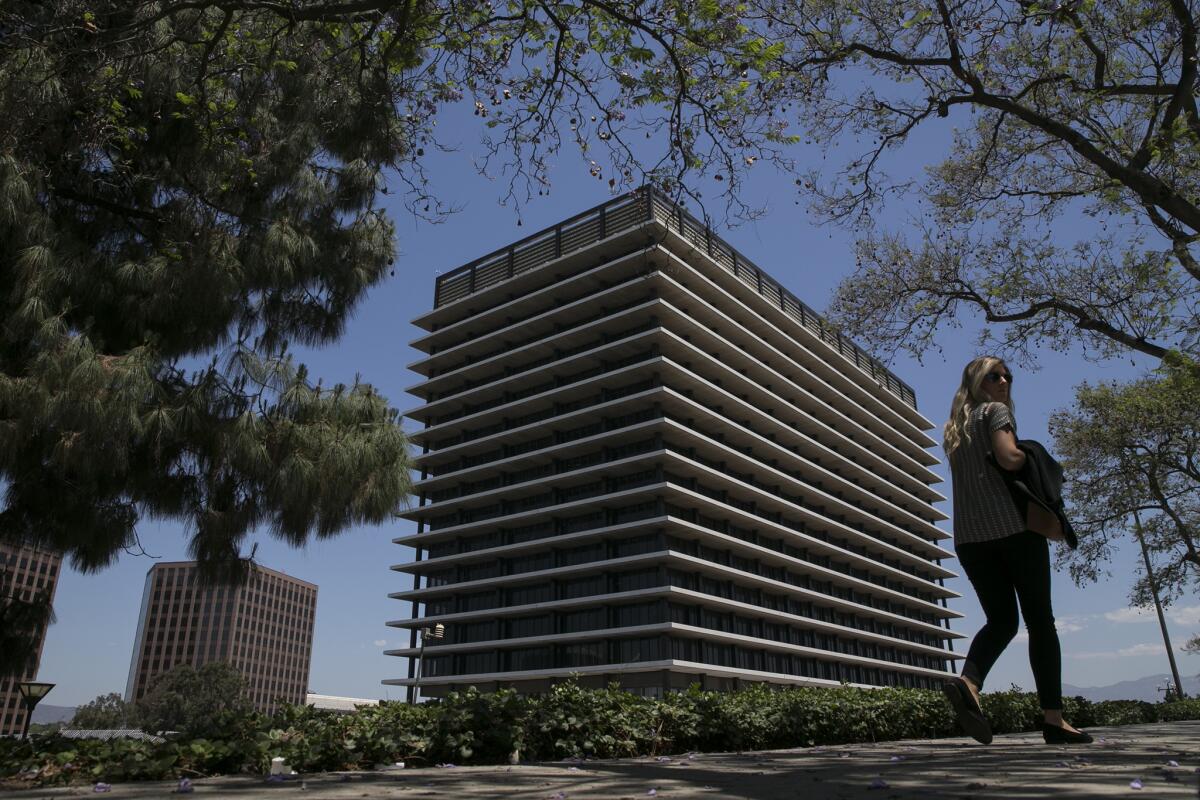L.A. voters to decide this fall whether to overhaul how the DWP is run

Los Angeles voters will face yet another decision this fall at the polls: Whether to revamp the way that the Department of Water and Power is governed.
The City Council voted Friday to add the proposal to the growing list of issues jostling for attention on the November ballot, which is already expected to include local measures tied to homelessness, public transit and affordable housing. A second procedural vote will take place next week.
âOur objective was to make the DWP more efficient, and we think that we do do that by giving a little more authority to the commissioners and the general manager to make more day-to-day decisions,â said City Council President Herb Wesson.
Under the plan, the utility board would expand to seven seats, from five, and members would have to meet new qualifications. Their terms would also be slightly shorter â four years rather than five, with a chance to be reinstated by the council with a two-thirds vote if the mayor sought to remove them.
The ballot measure would allow commissioners to receive a stipend. Council members have suggested $2,000 a month, but that amount would have to be approved in a separate ordinance.
The City Council no longer would routinely have to approve many decisions tied to utility contracts and leases after the board gives its blessing, though it could still choose to yank bigger contracts â possibly $15 million or more â and bring them up for a council vote.
The department would be allowed to start negotiating changes to its civil service system for hiring and firing employees with the unions representing utility employees â a change that backers argue would strip away red tape from the hiring process. Any changes in the DWPâs hiring practices would have to be agreed upon in a contract approved by union members and the Los Angeles City Council.
See the most-read stories this hour »
âConversations are happening with our Department of Personnel here in the city and the unit with DWP to try to come up with ways to try and speed things up. Thatâs where youâre going to find your more immediate changes,â Wesson said.
The plan would also create a new office to provide budget and policy analysis for the utility board, increase the minimum budget for the ratepayer advocate, and ensure that residential customers are billed monthly instead of every other month beginning in 2020.
And the utility would have to present a plan to the mayor and the council every four years laying out how water and power rates would be increased. After city leaders approve that plan, which would also include the DWPâs policy goals, the council and the mayor would not weigh in again unless the utility wanted to do something that differed from the plan. The City Council would retain the right to review rate increases.
Many critics have complained that the department, which reliably delivers water and power but has suffered from a string of embarrassments and a revolving door at the top, is too vulnerable to political meddling.
The plan does not go as far in curbing City Hall powers over the agency as some advocates had originally sought. Nor does the plan touch another hotly contested issue â the annual transfer of hundreds of millions of dollars from the department to the city general fund.
Others have challenged the core idea that City Hall should have less involvement in overseeing the department. Food & Water Watch, an environmental and consumer advocacy group, argued that the changes would âundermine democratic controlâ and pave the way for privatization.
Raphael Sonenshein, executive director of the Pat Brown Institute for Public Affairs at Cal State Los Angeles, said the decision means that âthe debate is just beginning.â
The new measure âwould create a Board of Water and Power commissioners that is a little bit more insulated from the mayor and council,â Sonenshein said. âThe question people will have to weigh is â will that improve the performance of the department or not?â
Twitter: @TheCityMaven and @LATimesEmily
ALSO
Editorial: Is this the DWP reform we need?
Op-Ed: City Council should retain oversight of DWP
Metro puts half-cent sales tax increase for transportation projects on November ballot
More to Read
Sign up for Essential California
The most important California stories and recommendations in your inbox every morning.
You may occasionally receive promotional content from the Los Angeles Times.












